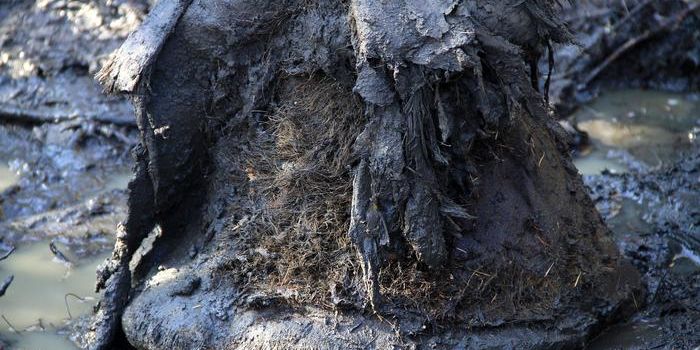The Genome of the Great White Shark has Been Decoded
The impressive great white shark has been able to capture the attention of humans and is the subject of endless fascination. It can grow to be twenty feet and 7,000 pounds and is able to dive to a depth of nearly 4,000 feet. Their low numbers are a cause for concern, however. In an effort to learn more about protecting this vital apex predator, an international team of scientists has sequenced the genome of the white shark. Their findings, which includes a comparison of the shark and other species, has been reported in the Proceedings of the National Academy of Sciences (PNAS).
This massive animal has a genome to go along; the great white genome is about one and a half times larger than the human genome. The researchers identified sequence changes in genes related to DNA repair and damage response; they revealed adaptation (or positive selection) in genes that maintain stability and preserve integrity in the genome.
"Not only were there a surprisingly high number of genome stability genes that contained these adaptive changes, but there was also an enrichment of several of these genes, highlighting the importance of this genetic fine-tuning in the white shark," explained study co-leader Mahmood Shivji, Ph.D., Director of NSU's Save Our Seas Foundation Shark Research Center and GHRI.
Transposons are genetic elements that can move around the genome. There was a high number of one kind of transposon, called LINEs, in the shark genome.
"These LINEs are known to cause genome instability by creating double-stranded breaks in DNA," said study co-leader Michael Stanhope, Ph.D., of Cornell University College of Veterinary Medicine. "It's plausible that this proliferation of LINEs in the white shark genome could represent a strong selective agent for the evolution of efficient DNA repair mechanisms, and is reflected in the positive selection and enrichment of so many genome stability genes."
It could be assumed that as an organisms ages, and as the number of cells in a body increases, the likelihood of damage in those cells and their genomes increases, making cancer more likely. But that theory has not held true. Animals with really big bodies seem to have evolved better ways to stave off cancer. The genetic characteristics in the white and whale sharks may have helped them evolve and live longer.
"Decoding the white shark genome is providing science with a new set of keys to unlock lingering mysteries about these feared and misunderstood predators - why sharks have thrived for some 500 million years, longer than almost any vertebrate on earth" said study co-author Dr. Salvador Jorgensen, a Senior Research Scientist at the Monterey Bay Aquarium.
The genome also revealed other interesting evolutionary adaptations in genes that may function in wound healing; sharks are able to rapidly heal.
"We found positive selection and gene content enrichments involving several genes tied to some of the most fundamental pathways in wound healing, including in a key blood clotting gene," said Stanhope. "These adaptations involving wound healing genes may underlie the vaunted ability of sharks to heal efficiently from even large wounds."
There is still a lot more to learn from white shark genome, noted the scientists.
"Genome instability is a very important issue in many serious human diseases; now we find that nature has developed clever strategies to maintain the stability of genomes in these large-bodied, long-lived sharks," said Shivji. "There's still tons to be learned from these evolutionary marvels, including information that will potentially be useful to fight cancer and age-related diseases, and improve wound healing treatments in humans, as we uncover how these animals do it."
“Decoding the white shark genome will also assist with the conservation of this and related sharks, many of which have rapidly declining populations due to overfishing," said Steven O'Brien, a conservation geneticist at NSU. "The genome data will be a great asset for understanding white shark population dynamics to better conserve this amazing species that has captured the imagination of so many."
Sources: AAAS/Eurekalert! via Nova Southeastern University (NSU), PNAS









